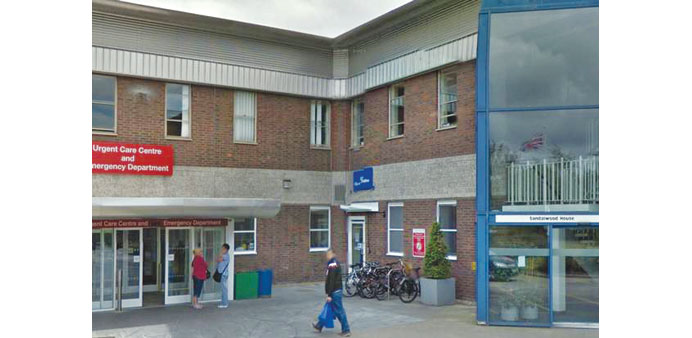Evening Standard/London
Cancer sufferers living in parts of east London have some of the worst survival rates for the disease in the UK, a study has found.
The data, released by Macmillan Cancer Support, suggests thousands of people are dying needlessly every year due to what the charity describes as a “postcode lottery” for healthcare.
It shows there are wide regional variations in the proportion of patients who do not survive a year after diagnosis.
In the boroughs of Barking and Dagenham and Newham, 38% of patients die within 12 months of diagnosis - making them among the ten worst local authorities in the country for cancer survival rates in that time frame.
The study also found 36% of people die within a year of diagnosis who live in Waltham Forest, north east London as well as Luton, in Bedfordshire.
Extended NHS waiting times for cancer treatment in certain boroughs are being blamed for the trend.
Meanwhile many other areas around England have much better survival rates, the charity found.
It found 24% of patients in the best performing local health area - north east Hampshire and Farnham - die within a year.
Macmillan said that the postcode lottery could be explained by how quickly patients are being diagnosed and treated. A spokeswoman said that areas with the poorest survival rates are on average failing to meet at least one key NHS waiting time targets for treatments.
The charity has estimated that if the whole country managed to match the survival rates seen in the 10 best-performing areas, 6,000 people would survive longer every year.
“This analysis shows an inexcusable postcode lottery which is responsible for 6,000 people dying needlessly within 12 months of being diagnosed with cancer every year,” said Juliet Bouverie, director of services and influencing at Macmillan Cancer Support.
“It’s a no-brainer - when patients have to wait longer for diagnosis and treatment their chances of surviving are significantly reduced.
“It is also a disgrace that our survival rates continue to lag behind other European countries. Failure to act now will see us fall further behind.
“All the Westminster political parties must make cancer a top health priority ahead of the general election and commit to reducing the number of people who are diagnosed late.”
An NHS England London spokesperson said: “We know that there are wide variations in cancer survival rates across London. That is why earlier this year we launched a new five year Cancer Commissioning Strategy to improve cancer services, enhance patient experience and raise survival rates in every borough.
“The strategy includes specific recommendations around increasing uptake of screening, training more GPs to spot the early signs of cancer and improving hospital performance to boost survival rates.
“We are determined that cancer patients in London – no matter where they live and whatever their diagnosis - will receive the highest possible standards of care so we can boost survival rates in the capital to match the best in the world.”

